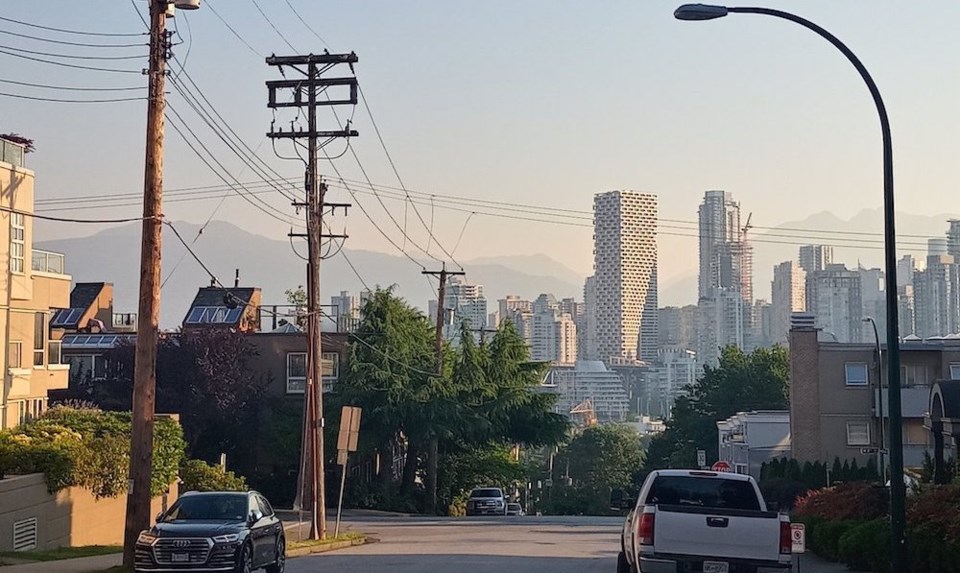If you have experienced difficulties breathing over the past couple of days, you might have blamed the intense heat.
But Environment Canada says Metro Vancouver continues to see "increased haziness" and is continuing an air quality advisory for the region.
The advisory was initiated on June 26 due to high concentrations of ground-level ozone. On Tuesday (June 29), the advisory notes that high concentrations of particulate matter are expected to persist during hot and sunny weather.
"Ground-level ozone is not emitted directly into the air," reads the advisory. "It is formed when nitrogen oxides (pollutants emitted when fuels are burned) and volatile organic compounds (emitted from solvents and other sources) react in the air in the presence of sunlight."
The highest levels of ground-level ozone are typically observed between mid-afternoon and early evening on summer days.
Locals should avoid strenuous outdoor activities during mid-afternoon to early evening, when ozone levels are highest, especially if breathing feels uncomfortable. You should consider choosing easier outdoor activities, such as walking instead of running, where you don't have to breathe as hard.
Exposure is particularly a concern for people with underlying conditions such as lung disease, heart disease, chronic obstructive pulmonary disease (COPD) including bronchitis and emphysema, as well as asthma, and/or diabetes; individuals with respiratory infections such as COVID-19; pregnant women and infants; children; outdoor workers (e.g. construction and agricultural workers); and older adults. Individuals who are socially marginalized may also be at elevated risk (e.g. people who are experiencing homelessness or are underhoused).
Heat advisory to continue for Metro Vancouver
Environment Canada is continuing its heat warning for Metro Vancouver, with daytime highs ranging between 29 to 39 degrees combined with overnight lows of 18 to 22 degrees. However, with humidity, these temperatures will feel more like the low 40s this afternoon.
This record-breaking heat event will increase the potential for heat-related illnesses, so it is imperative to stay cool and hydrated. Indoor spaces with air conditioning may offer relief from both heat and air pollution.
Indoors and outdoors, please continue to observe any COVID-19 protocols. Consider creating a comfortable space at work and home. If you are experiencing symptoms such as chest discomfort, shortness of breath, coughing or wheezing, seek prompt medical attention. Call 9-1-1 in the case of an emergency.
Watch for the symptoms of heat illness: dizziness/fainting; nausea/vomiting; rapid breathing and heartbeat; extreme thirst; decreased urination with unusually dark urine.
The northern sky was pretty hazy Monday at 6pm. It's even hazier this morning! And my tongue, mouth and throat are drier than they should be. Air quality *seems* poor in #Vancouver. Is it just the #heatwave trapping smog, or what? pic.twitter.com/RhTDVjOAAQ
— Stanley Q Woodvine (@sqwabb) June 29, 2021
Never leave people or pets inside a parked vehicle. Check on older family, friends and neighbours. Make sure they are cool and drinking water.
Temperatures are expected to begin to lower on Wednesday.



